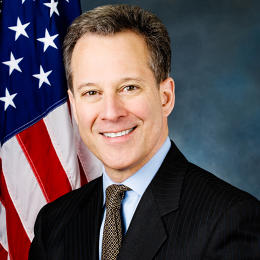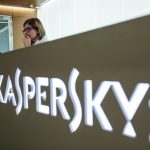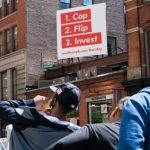“Twisted And Mischaracterized”: How FanDuel’s CEO Is Fighting Back Against Detractors
LeBron James hammers down a thunderous dunk, and 18,000 fans at the 2016 NBA All-Star Game erupt in a reverberating “Ooohhh!”
It’s Valentine’s Day at Toronto’s Air Canada Centre, where James, Stephen Curry, Kobe Bryant, and other stars are dazzling the crowd. A-list entertainers, from Drake to Kevin Hart to Jon Stewart, fill the courtside seats, while NBA commissioner Adam Silver monitors the action at half-court a few rows back. But one of the most significant people attending tonight’s game is someone most fans probably don’t recognize, an inconspicuous Irish math geek seated in row nine: Nigel Eccles, the 41-year-old CEO of FanDuel.
Over the past year, Eccles has turned FanDuel into the most controversial player in the world of sports entertainment. The company’s web and mobile apps let fans bet real money on rosters of athletes like LeBron and Kobe, from $1 to as much as $10,000 or more. Known as daily fantasy sports (DFS), FanDuel’s approach has exploded in popularity: More than 6 million people have registered to play, and last year, the company doled out $1 billion in winnings. FanDuel has raised more than $360 million in financing, has been valued at more than $1 billion, and has locked in deals with 32 NBA and NFL teams.
But as daily fantasy sports has grown, so has scrutiny. Critics argue that FanDuel, the industry leader, is essentially an illegal gambling ring operating at Silicon Valley scale. The service, they say, has streamlined the process and coated a criminal industry in a sheen of legitimacy, thanks to backing from the likes of Google Capital, Comcast, and the NBA. Eight states already prohibit DFS, and dozens more are currently weighing how to handle the phenomenon. With a host of investigations and lawsuits ongoing, FanDuel’s future remains a question mark.
Eccles shows no doubt that FanDuel will survive the regulatory pressure and government skepticism. Looking at him at the All-Star Game, as he munches on a pulled-pork sandwich and claps softly after each swish, you’d never know he’s at the center of so much controversy. “When you’re this close to the action, it’s so good,” says the CEO, who’s grown accustomed to plum seats at major events. Eccles has spent the past two days here in Toronto conducting three closed-door sessions at the upscale Fairmont Royal York hotel, during which he pressed NBA executives not to worry (the league has an equity stake in the company). The previous weekend, he made a similar pitch to NFL team officials attending the Super Bowl. Despite all the negative attention, he wanted them to know, FanDuel’s revenue has actually quintupled over the past 18 months. The company has made significant strides toward legalizing DFS in more than 20 states (a few weeks later, Virginia would become the first to officially sanction it). Among the benefits FanDuel offers to pro sports organizations: The more games that players engage in on FanDuel, Eccles says, the more sports they consume overall. “We’re very bullish on FanDuel,” says Orlando Magic CEO Alex Martins, who attended one of Eccles’s Toronto sessions. “It’s a breakthrough in fan engagement.”
In today’s startup climate—where innovating at speed often outpaces regulation—entrepreneurs like Eccles are convinced that they can’t wait for the government to catch up; they move fast and break things, as the saying goes. Airbnb, Uber, 23andMe—startups hurtle forward on the edges of legality, hoping that consumer demand and the undeniability of their innovations offer strong-enough moral justification. FanDuel, which is both hugely popular and legislatively uncertain, could now be the ultimate test of that philosophy.
FanDuel recently moved into an airy new office near New York’s Madison Square Park, having rapidly outgrown its former home seven blocks south. When I meet up with Eccles there on a February afternoon five days before the All-Star Game, the CEO has so far spent only a few hours in the new space, due to his draining travel schedule and the fact that he lives with his family in Edinburgh, Scotland, where FanDuel’s engineering team is based. Eccles commutes to New York regularly, splitting his time between the two offices.
I arrive just as Eccles is finishing his weekly “Ask Nigel” session, during which he answers queries on a company-wide videoconference call that includes employees of FanDuel’s five satellite offices. Nothing is off-limits during these sessions, with Eccles addressing financial numbers, negative media attention, and even legal issues. “I’ve been at a startup that ran into challenges, and people really weren’t being told what was happening,” the CEO says right after the session ends. “That made it much harder, because it really didn’t feel like we were all in it together.” At FanDuel, Eccles wants everyone to know where things stand. “It has certainly been a period of real uncertainty,” he says. “[Employees are] like, ‘What’s going to happen next?’ ”
It’s a good question. When Eccles cofounded the startup in 2009, long before all the controversy started, no one had heard of daily fantasy sports, and at first, his business grew quietly. FanDuel evolved out of another website, a “news predictor” called HubDub that Eccles launched in 2007 with his wife, Lesley, and three engineers. Though that project didn’t pan out, the quintet decided to continue working together, brainstorming other concepts on Post-its. They eventually hit on an idea to disrupt the fantasy-sports industry. Eccles, a native of Northern Ireland who studied econometrics at St. Andrews and later became a McKinsey consultant, wasn’t much of a pro sports fan, but he and his cofounders were enamored of data, and fantasy sports seemed promising. It was, after all, a game of number crunching.
Fantasy sports dates back decades, but over the past 15 years it has blown up in the United States into a multibillion-dollar Internet business. CBS, ESPN, and Yahoo, the dominant players for season-length fantasy sports, let users set up leagues with friends or enter an open tournament for larger cash prizes. Looking at the industry, Eccles saw an opportunity. “Fantasy sports in 2009 was the same as it was in 1999,” he says. “Maybe the interface was better, but it was the same basic game.” Pain points were rife: Users hated corralling friends to sign up each season; the game was slow; and interest often waned midseason, especially if your team got stuck with an injured player.
Eccles and his cofounders came up with the idea for a daily version, which solved most of these issues and made the experience far more fast-paced. DFS lets fans act as managers of their own virtual teams, assembling rosters of players chosen from the ranks of all current pro athletes, like “Dungeons & Dragons for jocks,” Eccles likes to joke. Your team then competes against those of your friends or other online competitors, and the roster with the best stats wins. DFS compresses the slow burn of a conventional season-long experience into a series of daily mini events, making the action much more intense—and betting much more practical. With FanDuel, competitors can enter a variety of contest styles, from a low-stakes group tournament, where teams finishing in the top half split the prize money, to a $10,600 head-to-head match, where the winner takes all. FanDuel keeps a 10% cut of all entry fees.
The genius of this model was that it worked within the bounds of the U.S. Federal Unlawful Internet Gambling Enforcement Act—or so Eccles argued. Eccles pored over a printed copy of the 2006 law, known as UIGEA (you-EEJ-ah), which barred gambling operators from accepting bets via the Internet. The bill killed the online poker industry, but it made an exemption for fantasy sports, which it branded a game of skill, not chance (essentially leaving it up to individual states to decide whether to allow it). Since the bill didn’t define fantasy sports as a season-long contest, as long as FanDuel satisfied certain UIGEA conditions (such as establishing kitty size before each contest), Eccles concluded that this new daily style of play was perfectly legal.
Leading into the summer of 2009, the team developed the first incarnation of FanDuel in a Google Docs spreadsheet, says cofounder and chief product officer Tom Griffiths, who recalls recruiting test players on Craigslist and accepting their entry fees via PayPal. “We were like, ‘Holy crap! People are doing it!’ ” FanDuel launched a more fully featured website in July, and by November, the company was ecstatic when it pocketed $5,000. Growth was bumpy, partly due to the “extreme seasonality” of sports, Eccles says. Engagement soared during the 2010 NFL or NBA seasons—”I remember thinking, We’re geniuses!” he laughs—but once they ended, it was “tumbleweeds.”
At first, Eccles struggled to attract funding. Paul Martino, an early investor, recalls meeting the “very buttoned-up, straight-arrow” entrepreneur. “Nigel needed to learn how to boast,” he says of Eccles’s pitch. “Most people [who] come into my office you’ve got to tone down, but Nigel we had to tone up. [He potentially] had one of the breakout businesses of the decade.” FanDuel managed to raise $4 million the following September from European investors. With an assist from advertising dollars, daily fantasy finally started to click, and soon the business was booming. In 2013, FanDuel awarded more than $150 million in cash prizes; by the end of 2014, that total jumped to $560 million for the year.
This growth was further bolstered by FanDuel’s marketing partnerships with sports leagues and team franchises, which have been essential in legitimizing daily fantasy and bringing it to the mainstream. The Orlando Magic was the first to sign on, in August 2014. Since then, FanDuel has made deals with dozens of NBA and NFL teams, including the Miami Heat and the Green Bay Packers. The company’s pitch was straightforward: DFS increases fan engagement. An NBA playoff game has no trouble selling tickets and ads, but what about that midweek snoozefest between two bottom-rung teams? The more wagers fans place on DFS sites, the more likely they are to tune in to a random matchup that happens to feature players in their lineups, even if the game itself is unexciting. “That’s our bread and butter; we want to make those games nobody cares about as exciting as the Super Bowl,” Eccles says.
In turn, the leagues and teams offer advertising, a social media push, and in-arena promotions. (FanDuel’s deal with the Jacksonville Jaguars, for example, led to “FanDuelVille,” a 3,000-person-capacity section of its stadium that offers multiple cocktail bars, live music, and, of course, a digital lounge experience to feed all your daily fantasy football needs.) These arrangements aren’t cheap: FanDuel pays anywhere from $500,000 to $1.5 million per year to each team it partners with.
In July 2015, with cash prizes headed to $1 billion by the year’s end, the company raised a $275 million round of funding from Google Capital and Comcast Ventures, among others. Much of this money has gone toward marketing, which has become especially significant with the growth of upstart DFS rival DraftKings. Launched in 2012, DraftKings itself raised $300 million last summer, led by 21st Century Fox, and the result of all this investment has been an onslaught of advertising. In September alone, when the NFL season kicked off, FanDuel and DraftKings collectively aired more than 200 hours’ worth of 30-second spots, the equivalent of nearly nine straight days of round-the-clock national ads.
FanDuel and DraftKings’ efforts to compete with each other have led to some questionable business practices. For one thing, some of their ads have been shamelessly misleading. Both companies have promised new players that they’d double their deposit, but the fine print hid a huge catch: To unlock, say, a matching $250 bonus, players first had to spend $6,250 betting on the sites. Worse, these ads implied that average fans were regularly winning big money; in truth, 91% of the sites’ payouts were going to an elite 1.3% of DFS players, according to a McKinsey report that studied three months during the 2015 baseball season (a FanDuel spokesperson says that the payout percentage is different at other times of the year). In other words, if you spend money playing games on FanDuel or DraftKings, you are extremely likely to lose it.
When New York attorney general Eric Schneiderman announced that his office would go after DFS, FanDuel executives were shocked by his hostility. “Daily fantasy sports is neither victimless nor harmless,” Schneiderman said in a November 2015 press release, “and it is clear that DraftKings and FanDuel are the leaders of a massive, multibillion-dollar scheme intended to evade the law and fleece sports fans across the country.”

Things had started to go wrong for the DFS sites that October, when The New York Times published a story about a DraftKings employee who allegedly used insider information to win $350,000 in a FanDuel tournament. Both companies denied wrongdoing (although they have since forbidden employees from playing any DFS games), but the revelation led to intense negative media coverage. Fans started to learn about how some of the sites’ most active users gamed the system by entering hundreds of matches (or more) per day with the help of software scripts to automate the betting process.
Cries for regulation were swift, and soon Schneiderman and other state attorneys general opened investigations into DFS. In November, Schneiderman essentially ordered FanDuel and DraftKings to shut down. (An appellate court later ruled that they could continue operating temporarily.) In the wake of the controversy, several major payments processors, including Citigroup and Bank of America, stopped accepting DFS–related transactions in New York state, and the industry now faces around 80 class-action lawsuits, ranging from claims of fraud to false advertising.
Eccles insists that FanDuel has been “twisted and mischaracterized” and that his company operates with integrity. FanDuel has a “good moral compass,” he says—nothing like the unscrupulous gambling ring you’ve read about in the news. “The game is an evolution of seasonal fantasy sports, which has been considered legal for 50 years,” he says. At the same time, he adds, “It shouldn’t be a nonregulated free-for-all. There is no multibillion-dollar unregulated industry; we needed to become regulated.”
Spending time with Eccles, it’s clear that he’s determined to remain disciplined and focused, whatever obstacles arise. “Nigel is not someone who panics,” says Owen O’Donnell, who worked closely with Eccles in the early days of HubDub and FanDuel. “A lot of entrepreneurs have emotional reactions, whereas Nigel has always been pragmatic, measured, and nonconfrontational. You’d never hear his team swearing or shouting.” Still, the company’s efforts to spin opinion can feel a tad contrived, especially when I’m scolded several times for using what CFO Matt King refers to as “the B-word”: betting. (In FanDuel’s world, users don’t bet; they “play.”)
Ultimately, FanDuel’s fate will be determined less by its internal culture than by the vagaries of state-level politics, as legislatures around the country begin to hash out what to allow. The challenges ahead are overwhelming, and they could end up crippling FanDuel. For Eccles, the strategy right now is just to keep going. King compares it to Matt Damon’s character in The Martian, an astronaut trying to make it home from Mars. “How do you survive?” King asks. “He’s like, ‘You solve one problem, and then you solve the next one, and then the next.’ That’s our approach. Because if you take a step back and look at the totality of all of your problems, you’re screwed.”
Since Schneiderman “declared war” on FanDuel, as Eccles puts it, the company has been racing to gain support in state capitols. The CEO says that it was “frightening” how Schneiderman could “wake up and reinterpret the law and decide [DFS is] illegal.” But the reality is murkier. UIGEA, written before the concept of DFS existed, did carve out an opening for fantasy sports at a federal level, but it doesn’t explicitly declare DFS to be legal—and it doesn’t trump state gambling laws.
In many states, the definition of gambling depends on whether a game is predominantly skill- or luck-based. This standard is vague. Is DFS a game of skill because players analyze stats to build the best lineups? Or a game of chance because the outcome of a tournament often depends on unpredictable events, such as wind blowing a field-goal kick wide of the goalposts or a starting quarterback getting injured? “Our laws make it explicitly clear that if there’s a material element of chance, even if skill is involved, it’s still gambling,” Schneiderman has said. The attorney general of Rhode Island, meanwhile, has said he believes that DFS is a mix of both chance and skill and is likely legal under state law.
FanDuel and DraftKings have enlisted armies of high-profile lawyers and lobbyists to push this latter view. The Fantasy Sports Trade Association, which is funded in part by the two DFS leaders, has hired at least 65 lobbying firms in 44 states and will reportedly spend around $10 million on the fight in 2016. NBA commissioner Adam Silver has thrown in his support, as has Dallas Mavericks owner Mark Cuban. (“It’s not a lottery. It’s not a card game. It’s a game of investigation, preparation, and intellect,” Cuban told me in an email.) “Over a three-year horizon, I’m confident that we will get to 45 states with laws that clarify the legality of fantasy sports,” Eccles says.
Currently, there are just two states that specifically legalize daily fantasy sports: Virginia and Indiana (Kansas has a law that legalizes fantasy sports more broadly). But FanDuel says it’s optimistic about regulation in more than 20 state legislatures, including California. Many bills include a set of baseline standards, such as prohibiting DFS company employees and their relatives from playing and upping the minimum age to 21 from 18 (Eccles supports these regulations). To lawmakers such as Indiana state senator Karen Tallian, though, the rapid push to legalize this new industry is distressing. She couldn’t believe that a DFS bill, authored by two novice lawmakers, rushed through the senate chamber without much resistance. “Half my colleagues were going, ‘Fantasy gaming? What’s that?’ ” Tallian recalls. “These companies are pushing legislation all over the country to say [DFS] is not gambling so they can automatically get rid of that hurdle. This is just wrong. We need to slow down and look at this harder.”
In many ways, this legislative approach resembles that of Airbnb and Uber, which continue to fight regulatory battles as they seek broader acceptance of their disruptive services. FanDuel has even tapped consultant Tusk Strategies, which previously advised Uber, to help raise awareness of the situation among consumers. But there’s a difference: Resistance to those companies is primarily coming from the industries being disrupted, whether it’s the entrenched taxi industry or the multibillion-dollar hotel business. With FanDuel, the sports industry is an enthusiastic supporter. Eccles says his plan is to work with legislators to “educate” them about his company, rather than “trying to steamroll into places like Uber.” But he does push back against some tougher regulation. For example, Eccles recoils at a proposal by the Massachusetts attorney general that would institute a $1,000 limit on deposits per month unless customers can verify to DFS operators that they can sustain higher losses. “You would never treat Amazon like that,” Eccles says. “People overspend on shopping, right? Amazon never has to prove that somebody can afford what they’re buying. It feels a bit overly paternalistic.”
Some critics have also called on the DFS sites to crack down on the high-volume players who enter hundreds of tournaments per day to win big payouts from less-savvy players. Banning this type of play sounds like common sense, but as Tom Griffiths, FanDuel’s chief product officer, explains, restricting these players would “reduce the size of the prize pools, which is something that people really like. It would also make us smaller as a business.” The company has tried to alleviate the situation with features such as “rookie contests,” which are only open to players who have entered fewer than 50 games. But ultimately, Eccles believes players should just be allowed to play. It all comes down to your “personal liberty,” a phrase he repeats three times in the course of 10 minutes during one of our interviews.
With 2.6 seconds left on the clock at the NBA All-Star Game, Steph Curry sails a half-court shot that kisses the net as it passes through the hoop—an astonishing display of his effortless stroke. The game ends, and Eccles and I make our way to the exit. The night’s festivities are just getting going; Ludacris and Lil Jon are hosting after-parties that will rage for hours to come. But Eccles is tired. He’s been on the road for a month, and he has to fly to San Francisco and New York for meetings before he can return to his family 3,000 miles away in Scotland. “In the early years, I’d be out until four in the morning,” he says. “Now I’m, like, done at 11 p.m.”
This is the closest you’re likely to come to hearing Eccles complain. Despite all the pressure and accusations of wrongdoing, the CEO remains outwardly unruffled. Still, Eccles’s cofounder and wife, Lesley, admits that the last year has been “so, so tough.” And FanDuel’s challenges continue to grow. Just three weeks after the All-Star Game, on March 4, the company announced that it would soon cease operations in Texas, in accordance with the state attorney general’s opinion that DFS is illegal. On March 21, FanDuel reached a settlement with New York’s attorney general to immediately stop operating paid contests in the state pending the outcome of litigation or the passage of legislation that directly regulates DFS. FanDuel will now no longer be able to collect entry fees from almost a quarter of the country’s population.
According to several sources, FanDuel has also had to scale back ambitions to develop products that go beyond its core DFS business, such as Zynga-esque mobile sports games. “They realized they didn’t have the time or money to focus on expansion,” says FanDuel’s former strategy VP Lee Milstein, who left in December when it became clear his role was no longer relevant. “[New products] became theoretical, like, ‘Yes, that sounds amazing, but we can’t do it right now.’ ” FanDuel has since laid off 55 employees.
But Eccles isn’t giving up. The company plans to revamp its national marketing campaign for the upcoming NFL season, focusing less on those giant cash prizes and more on how much fun it is to play DFS. FanDuel plans to further integrate sports analytics service NumberFire, which it acquired last summer, to provide users with premium data feeds to research and optimize their lineups. And Eccles and his team hope to talk Texas and New York lawmakers into introducing legislation that would legalize their business.
As fans drain out of the Air Canada Centre—many no doubt on their way home to obsessively prep for the next batch of DFS matches—Eccles chats about how much he loved watching so many superstars spar. But the truth is, he’s less a fan of sports giants than of underdogs, he says—players who quietly help their teams win without ever making the All-Star Game and struggling teams that attract die-hard fanatics who never give up, no matter how lost a season might seem.
It isn’t hard to see why. For Eccles and FanDuel, success won’t come with a gorgeous half-court swish in the final seconds. It’s going to be a slow, flying-elbow fight to push the ball into the paint and—if things end up going their way—through the basket. In order to succeed, Eccles believes, “you need a good dose of disappointment and kicks in the teeth. If you don’t have that, you don’t really appreciate when things are good.”
A version of this article appeared in the May 2016 issue of Fast Company magazine.
(57)














